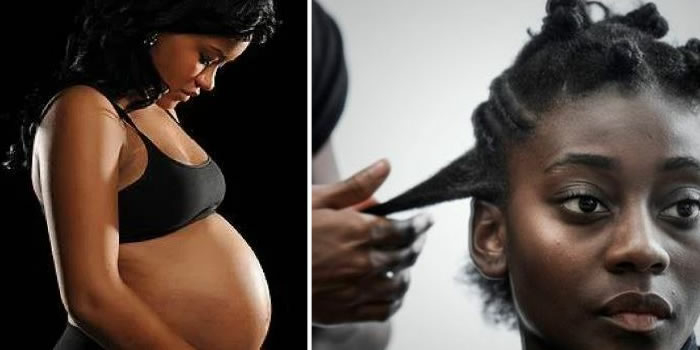Pregnancies do not only change a woman’s body but also cause some unexpected strange changes in the hair. These changes lead to the shedding of hair during and a few months after delivery.
This condition is known as Postpartum Alopecia. Before you start worrying if you’re about going bald, you’re not, this hair loss is not permanent. During pregnancy, a lot of hormonal changes occur and some of these changes affect the hair positively.
Some women will notice that during pregnancy, their hairs are usually healthier. This is as a result of estrogen that is being produced. The estrogen stimulates the hair follicles to start the growing phase, and that is why as a pregnant woman, you’ll notice that your hair grows significantly faster than it did before you got pregnant. After childbirth, the estrogen level drops and returns to the pre-pregnancy level, prompting the hair follicles to enter the resting phase.
The estrogen and progesterone changes, stress and nutrition also affect hormone levels which can also affect hair growth. Thyroiditis, which is caused by an imbalance of thyroid hormones can create an imbalance in the thyroid hormones and affect growth.
Thyroiditis, which is caused by an imbalance of thyroid hormones can create an imbalance in the thyroid hormones and affect growth. To prevent hair loss, ensure that you’re getting regular, gentle-to-moderate exercise. This keeps all the vital organs of your body active and can help regulate the hormonal imbalance during pregnancy. Also, do not underrate the essence of a good diet. Consume a healthy diet rich in nutrients to support your body that is experiencing changes and help its postpartum recovery. If recommended by your doctor, take postpartum vitamin and mineral supplements if recommended by your doctor.
To avoid hair loss. the following should be done





Discussion about this post